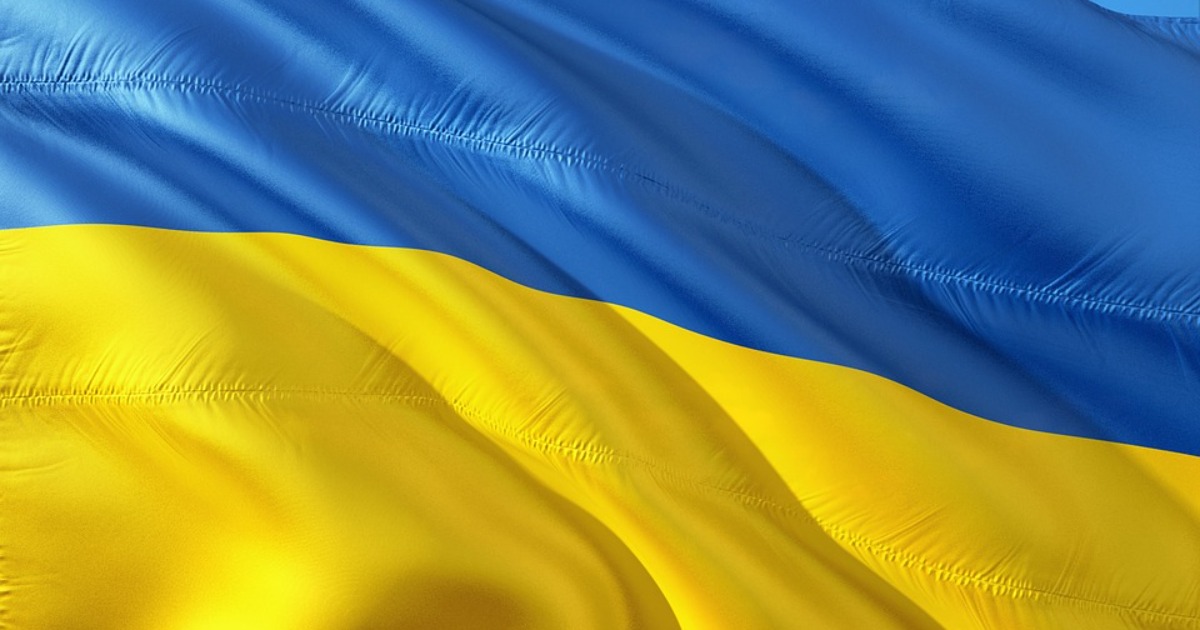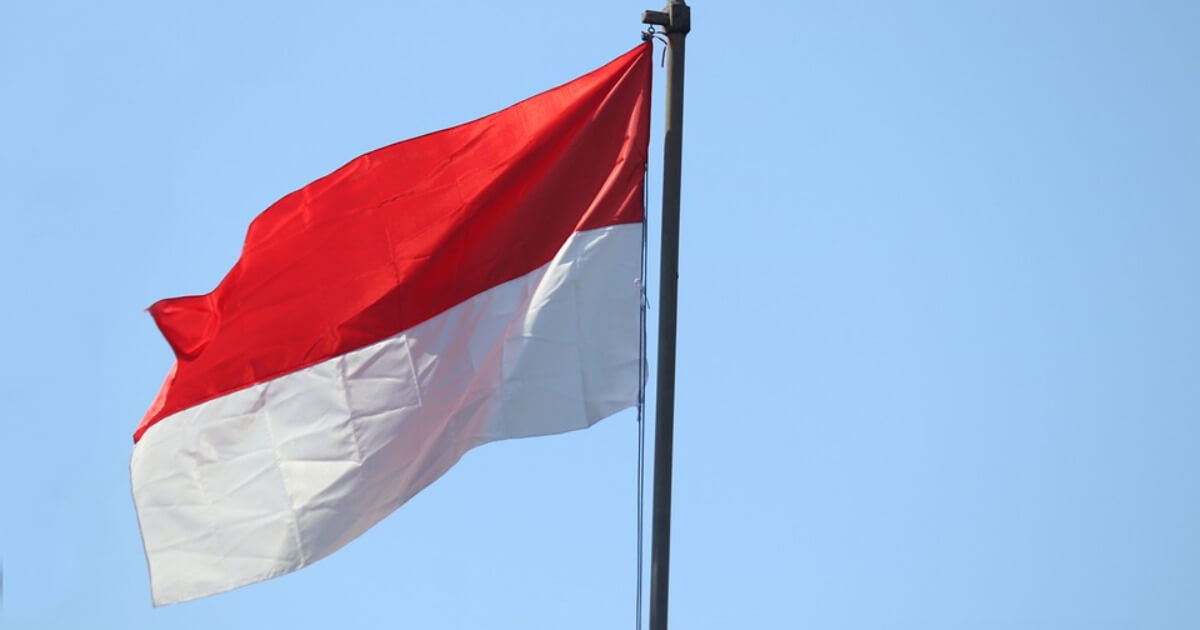Will Ukraine Be a Replay of Poland in 1939?
To prevent a Russian invasion of Ukraine, the U.S. and NATO can’t rely on sanctions alone. History offers a clear message on appeasement.
January 12, 2022

A brutal dictator threatens to invade one of his neighbors, a much smaller country that he claims is a threat to his nation.
Furthermore, he asserts, his country has a historical right to the other nation’s territory, which was stolen from his.
The smaller country has a young but vibrant democracy and a brave but hopelessly outmatched army.
Western leaders, wringing their hands, deplore the situation but don’t take aggressive steps to help the country under threat. The dictator’s gamble succeeds, and he conquers his neighbor as the West stands by.
Parallels with Hitler’s Polish Invasion
We’re talking, of course, about Poland in 1939, which Great Britain and France refused to defend against Hitler. We are also talking about Ukraine in 2014…and now, eight long years later, in 2022.
Vladimir Putin, like Adolf Hitler, is using a Big Lie to justify massing almost 100,000 Russian troops on the border with Ukraine, triggering fears of an imminent invasion.
Will President Joe Biden and other Western leaders act forcefully to stop Putin? Or will they acquiesce as he pursues his vision of restoring Russia’s empire in Eastern Europe?
Taiwan could be next
The Chinese are watching carefully. If the U.S. and its NATO allies allow Putin to invade Ukraine and overthrow its popularly elected government, their failure will encourage the Chinese to seize Taiwan. President Xi Jinping will conclude that the U.S. and NATO have lost the will to protect vulnerable democratic nations from attack.
With its credibility shattered, the U.S. will lose its status as the world’s superpower.
Big lie, part #1: NATO wants to destroy Russia
The Russian President was infuriated in 2008, when American presidential candidates publicly backed Ukraine’s application to join NATO. Putin also claims that the U.S., along with its NATO allies, is putting Russia in danger because the U.S. plans to move missiles and troops into Poland and the Baltics.
The Russian President’s nightmare scenario is that Ukraine becomes a NATO member and the U.S. bases missiles and troops there. In hindsight, American politicians should have been more cautious in their statements about possible NATO membership for Ukraine.
Those remarks were a foreseeable provocation. There’s no need to poke the Russian bear without a compelling reason to do so.
A paranoid attitude
But Putin’s claims are not based in reality. They reflect a paranoid attitude toward the West, which has no plans to attack Russia.
The U.S. military presence in Eastern Europe, and Ukraine, is tiny. It’s not clear whether Putin actually believes his allegations about the West’s supposedly nefarious plans (unlikely) or he is simply using them to whip up the Russian public.
Unfortunately, since Putin has essentially destroyed the independent press in Russia, it’s easy for ordinary Russians to believe his fantastic claims.
Russia as serial aggressor
In fact, under Putin, Russia has been the serial aggressor. In 2008, Russian troops attacked Georgia, a small country on its southern border, and grabbed a chunk of its territory. In 2014, Russia invaded Crimea, and it also supported a rebellion in eastern Ukraine.
When the Ukrainian Army gained the upper hand in the eastern provinces, Putin sent in Russian troops to aid the rebels.
Those troops have helped to ensure that a low-level conflict continues in two Russian speaking provinces in Ukraine, but they represent only a thin sliver of the country. Apparently, Putin is not satisfied; he wants more.
Big lie, part 2: Ukraine belongs to Russia
Putin’s Big Lie has two other major components, which are closely related.
In his worldview, Ukraine still belongs to Russia, because of its cultural, linguistic and religious ties… even though the vast majority of Ukrainians obviously have a different view.
Putin does not describe Ukraine as a “breakaway province”, as the Chinese refer to Taiwan, but he has the same attitude. These people are not entitled to have an independent country; they should be our subjects.
Ukrainians are pro-Western
There’s a problem, however. Ukraine gained its independence 30 years ago. Since 2014 its governments have followed a pro-Western tilt and lobbied for admission to NATO. They have been elected through a popular vote; their policy reflects public opinion.
Polls consistently show that Ukrainians want closer ties with the West and that the populace has become increasingly anti-Russian, because of Putin’s maneuvers.
Free press, fair elections in Ukraine
Putin’s response? Russian propaganda on state TV attacks the Ukrainian government officials as a group of corrupt fascists who are puppets of the West.
Corruption is a serious problem in Ukraine, but the country has a free press and fair elections. Unlike Putin, Ukrainian leaders do not kill or jail their opponents, and they are not fascists.
Putin’s motivations
Putin has many motivations for creating the crisis with Ukraine. The Russian President seems genuinely aggrieved that Ukraine split off from Russia when the Soviet Union was dissolved.
Distracting Russian pubic
Putin is also following the classic autocrat’s playbook. He is using a supposed threat from abroad to distract the public from major problems at home: the raging Covid epidemic, which Russia has not managed well; a sluggish economy that is heavily dependent on oil and gas; and a stifling crackdown on any dissent or criticism. Putin’s Russia is a dreary place to live.
Ukraine as a political threat
Anne Applebaum has suggested in The Atlantic “The U.S. Is Naive About Russia” that Ukraine could pose an existential threat to Putin’s regime, but in the political sphere rather than the military one.
If Ukraine became a prosperous country, with a dynamic economy in addition to a vibrant democracy, it could become an attractive model for ordinary Russians.
That’s very dangerous for Putin and his KGB cronies. Like their Chinese counterparts, they do not want to compete with a democratic, capitalistic and growing country next door.
Ukraine needs help…and fast
Like the Poles in 1939, and the Czechs in 1938, the Ukrainians are ready to fight the Russians, but they desperately need military assistance.
Although Ukraine has a sizeable army, its air force is small and weak. Much of the army’s equipment dates from the Soviet era and is outmoded. Meanwhile, Putin has spent large sums to improve his forces.
U.S. has dragged feet
Unfortunately, the U.S. has dragged its feet on helping Ukraine, even after Russia seized Crimea in 2014. The U.S. has provided relatively modest amounts of money, arms and training, despite the Ukrainians’ pleas.
For example, President Barack Obama refused to provide Ukraine with Javelin anti-tank missiles, apparently because he feared that Putin would use them as an excuse for more saber-rattling.
Trump Sold Javelins
President Donald Trump did sell Javelins to Ukraine, in one of his few astute foreign-policy decisions, and Putin did not take counter-measures. These missiles may be a partial deterrent for Putin, because they could inflict losses on Russian tank units.
Ukraine lacks air defenses
So far, though, the U.S. has not sold or provided the Ukrainian forces with effective anti-aircraft or anti-missile systems, which leaves them dangerously exposed to Russian attacks from the air. U.S. officials want to walk a fine line between equipping the Ukrainians to defend themselves and provoking Putin into attacking them.
That’s a complicated decision, of course, but the U.S. government seems to have been too cautious, too worried about the Russians’ possible reaction. After all, the arms that the Ukrainians have requested are all defensive in nature.
Russian army dwarfs Ukraine’s
And although Ukraine is a large country, geographically, and has a population of about 44 million, it is dwarfed by its neighbor. Russia has 142 million citizens or over three times Ukraine’s population.
Putin charges, nevertheless, that providing such arms to Ukraine constitutes a dire threat to Russia:

To see the absurdity of Putin’s claim, let’s compare the two countries’ forces:
For starters, Russia has four times as many regular soldiers as Ukraine. Russia’s military budget, $65 billion, is 12 times larger than Ukraine’s $5.2 billion. As a result, Russian forces have newer, state-of-the-art equipment than the Ukrainians do.
What the U.S. should do now
President Biden and his NATO counterparts are in a tough spot, but so were the British and French leaders in the 1930s. Appeasement did not work then, and it won’t work now.
Biden has taken a good step—finally—by threatening very harsh financial sanctions, such as shutting Russian banks out of the global banking system. That could wreak havoc on the Russian economy and inflict a lot of pain.
Sanctions not enough
But sanctions alone are probably not enough.
Biden should quickly ask the U.S. Congress for approval to sell, or just give, the Ukrainians anti-aircraft and anti-missile systems and sophisticated drones.
Biden should increase American trainers in Ukraine from the few hundred National Guard reservists there at present, so the Ukrainians could master those complicated weapons.
The Americans know that the Ukrainians can’t defeat the Russians on the battlefield, given the disparity in the forces. The goal is to increase the possible losses in life and material for Russia so much that Putin is deterred.
Keep Putin guessing
Biden was wise to outline in detail for Putin how the U.S. would punish Russia. Still, Biden might do well to keep Putin guessing about some possible counter-moves.
For example, when Biden said that he would not send U.S. troops into Ukraine, he may have done that to reassure Putin about his intentions. But why say anything? Just let Putin worry about how far the U.S. would go to help Ukraine.
Cyber warfare an option
Along those lines, the U.S. should consider unleashing major cyberattacks on Russian infrastructure, despite some risks.
Such a step would reveal some of our cyber capabilities, and it might alienate Russian citizens, who would feel the brunt of any disruptions.
This move might trigger a counter-attack from Russia, too. Nevertheless, an in-depth cyberattack would also raise the cost for Putin’s adventurism.
Putin’s weak points
Putin holds some strong cards, but he has weak points, too, so invading Ukraine could be a high-risk move for him.
Since Putin’s troops are on the border with Ukraine, he does not face major supply line problems. By contrast, the U.S. and NATO would have a very difficult time establishing a large force in Ukraine and maintaining it.
Putin’s control of state media allows him to whip up nationalist frenzy among Russians, many of whom accept his view that Ukraine should be part of Russia.
Large Russian casualties possible
Still, if Putin did invade Ukraine and the Russian forces suffered large casualties, that could hurt Putin badly. As the coffins piled up, Russians might ask themselves why their Slavic brothers in Ukraine were fighting so hard to stay independent.
Afghanistan war ruined Soviet Union
Furthermore, the disastrous war in Afghanistan was one of the major causes of the Soviet Union’s collapse. Putin, a keen student of history, is undoubtedly aware of that.
And if the Russian economy contracted sharply because of strong U.S. and NATO sanctions, that could anger an already disgruntled public.
Russians lived through sharp downturns in 2015 (Crimea sanctions) and 2020 (Covid), and there may be a limit to their patience, despite their famous stoicism.
Not the most popular Czar
Putin’s standing with the public is already under pressure. His popularity rating has steadily declined to the mid-60s at year-end 2021 from about 80% in 2018, as the Russian economy lost momentum. A 65% popularity rating seems high, especially when American presidents hope to get above 50.
However, American leaders have to deal with the slings and arrows unleashed by a free press and their political opponents, so the numbers are not comparable.
Putin’s popularity soared to almost 90% in 2014, when he snatched Crimea. However, Ukrainian forces surrendered without a fight, so the Russians did not suffer any casualties. That would not be the case if they attacked Ukraine’s heartland.
Why we should care about Ukraine
After the debacle in Afghanistan, many officials in the U.S. government and their NATO allies want to avoid any foreign conflicts. Many Americans and Europeans may wonder, why should we care about Ukraine?
The difference is that in Afghanistan, the U.S. and NATO tried to create a nation and a modern democracy out of a feudal collection of tribes and fiefdoms.
The effort was probably doomed from the start, and the failure of that project does not have implications for the role of democracy in a modern state.
Ukraine is a democracy and a country
Ukraine is a country, and its citizens have a sense of national identity and pride. They have a functioning, albeit flawed, democracy. The Ukrainians are willing to fight to defend their country; they just want America and NATO to give them the weapons to do that.
Conclusion
If Vladimir Putin can snuff out democracy in Ukraine, Taiwan will be the next domino to fall. And this time, the domino theory will work. Xi Jinping will see to that.
Takeaways
Vladimir Putin, like Adolf Hitler, is using a Big Lie to justify massing almost 100,000 Russian troops on the border with Ukraine, triggering fears of an imminent invasion.
Will President Joe Biden and other Western leaders act forcefully to stop Putin? Or will they acquiesce as he pursues his vision of restoring Russia’s empire in Eastern Europe?
If the U.S. and its NATO allies allow Putin to invade Ukraine, their failure will encourage the Chinese to seize Taiwan.
The Russian President’s nightmare scenario is that Ukraine becomes a NATO member and the U.S. bases missiles and troops there.
Putin’s claims are not based in reality. They reflect a paranoid attitude toward the West, which has no plans to attack Russia.
Under Putin, Russia has been the serial aggressor. In 2014, Russia invaded Crimea, and it also supported a rebellion in eastern Ukraine.
In Putin's worldview, Ukraine still belongs to Russia, even though the vast majority of Ukrainians obviously have a different view.
Corruption is a serious problem in Ukraine, but the country has a free press and fair elections.
Putin is using a supposed threat from abroad to distract the public from major problems at home
Ukraine could pose an existential threat to Putin’s regime, but in the political sphere rather than the military one
Like the Poles in 1939, and the Czechs in 1938, the Ukrainians are ready to fight the Russians, but they desperately need military assistance.
U.S. government seems to have been too cautious, too worried about the Russians’ possible reaction.
Biden should quickly ask the U.S. Congress for approval to sell, or just give, the Ukrainians anti-aircraft and anti-missile systems and sophisticated drones.
Ukraine is a country, and its citizens have a sense of national identity and pride. They have a functioning, albeit flawed, democracy.

